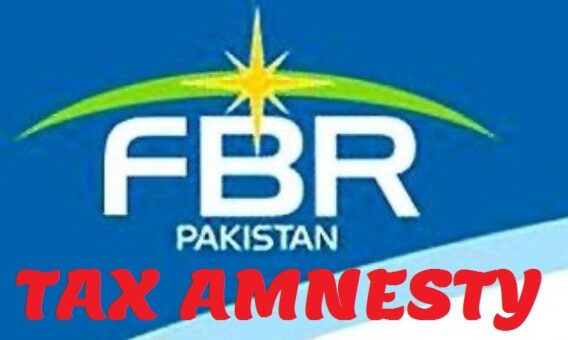KARACHI: Persons / companies can avail amnesty scheme 2019 by paying 20 percent default surcharge by December 31, 2019 subject to declaration filed by due date.
Officials at Federal Board of Revenue (FBR) said that the scheme was promulgated through presidential ordinance on May 14, 2019 to allow the non-documented economy’s inclusion in the taxation system and serve the purpose of economic revival and growth by encouraging a tax compliant economy.
The amnesty was granted till on or before June 30, 2019 for a declaration only in respect of any –
(a) undisclosed assets, held in Pakistan and abroad, acquired up to June 30, 2018;
(b) undisclosed sales made up to June 30, 2018;
(c) undisclosed expenditure incurred up to June 30, 2018; or
(d) benami assets acquired or held on or before the date of declaration.
As per the time of payment, the scheme allowed the due date for payment of tax on or before June 30, 2019. However after the due date, the tax shall be paid on or before June 30, 2020 along with default surcharges.
If person fails to pay tax and default surcharge, the declaration made would be void and would be deemed to have never been made under the scheme.
The rate of tax for the amnesty scheme was:
01. All assets except domestic immovable properties at 4 percent
02. Domestic immovable properties at 1.5 percent
03. Foreign liquid assets not repatriated at 6 percent
04. Unexplained expenditure at 4 percent
05. Undisclosed sales at 2 percent.
The rate of default surcharge under the scheme has been set to increase by a default surcharge by amount percentage as specified following:
01. If the tax is paid after the June 30, 2019 and on or before September 30, 2019, the rate of default surcharge shall be 10 percent of the tax amount.
02. If the tax is paid after September 30, 2019 and on or before December 31, 2019, the rate of default surcharge shall be 20 percent of the tax amount.
03. If the tax is paid after December 31, 2019 and on or before March 31, 2020, the rate of default surcharge shall be 30 percent of the tax amount.
04. If the tax is paid after March 31, 2020 and on or before June 30, 2020, the rate of default surcharge shall be 40 percent of the tax amount.







